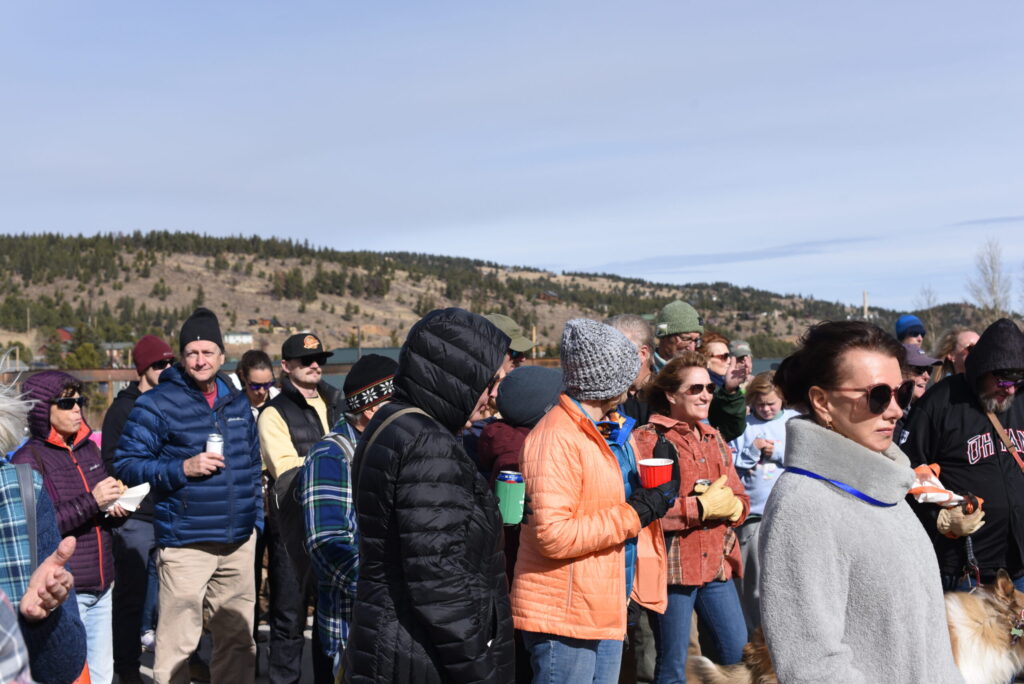Douglas County awards grants to opioid recovery organizations
Douglas County officials said addressing opioid addiction is a priority, lamenting the issue as a crisis while awarding grant dollars to local recovery organizations last week.
Douglas County commissioners approved $670,000 in funding for two local recovery and rehabilitation organizations.
The grants were recommended by the Douglas County Opioid Council, which works with two Douglas County-based organizations that offer “peer-led recovery services and connect people in recovery with accessible sober-living environments,” county officials said in a news release.
Douglas County’s opioid council was created after Colorado distributed a 20% share of a national opioid settlement to local governments in 2021. The settlement resulted from opioid manufacturers and distributors being accused of perpetuating opioid abuse.
Commissioner Abe Laydon, also co-chair of the Douglas County Opioid Council, said that Douglas County has received $18 million so far with the potential of $25 million more in future settlements that can be allocated toward dealing with opioid addiction.
Laydon said anything sent from the settlement to Douglas County municipalities is fueled back into the county’s opioid council.
“Finding innovative solutions, support, and strategies to alleviate the opioid crisis is a priority in our community,” county officials said.
The opioid council directed the majority of funding, $567,000, to HardBeauty. That organization assigns peer recovery support specialists to places like SkyRidge Medical Center or the Douglas County Jail that offer direct support to those struggling with drug abuse.
Meanwhile, the county is directing $100,000 to Valley Hope, a Parker-based organization which focuses on in-house residents who pay to reside in sober-living environments, officials said.
“These organizations work tirelessly in our community to ensure individuals recovering from substance use disorders receive the resources they need,” Laydon said in a statement.
“We are humbled and proud to be able to help these outstanding organizations expand this important work,” he said.
Douglas County, including its five municipalities, created the Douglas County Opioid Council “to oversee funding priorities and develop a strategic plan for addressing opioid-related challenges,” officials said.
In 2023, the council established its own two-year plan.
“We needed to be our own council and, to this day, it has really paid off,” Laydon said.
In a 2025 Common Sense Institute Fentanyl-use study, experts pointed to the total number of overall drug overdose deaths, which, in Colorado, decreased from 1,935 in November 2023 to 1,631 in November 2024.
Comparing Denver to the north, Colorado’s most populated city experienced a 20% increase in drug overdoses, both fatal and non-fatal, through July. If this year’s trends continue, Denver could surpass the number of non-fatal cases in 2023, when more than 3,000 overdoses were reported.
Douglas County officials plan to continue preventative efforts.
“Opioid abuse is not a solitary struggle; it ripples through families, affecting loved ones and friends, and ultimately, the entire community,” Roger Hudson, Castle Pine city councilmember and co-chair on the Douglas County Opioid Council, said in a statement.
“The pain of addiction does not discriminate,” he said. “It knows no boundaries, and it affects all of us. When one member of our community suffers, we all suffer. That’s why it’s imperative that we unite in our efforts to educate, prevent, and treat addiction — now.”
















